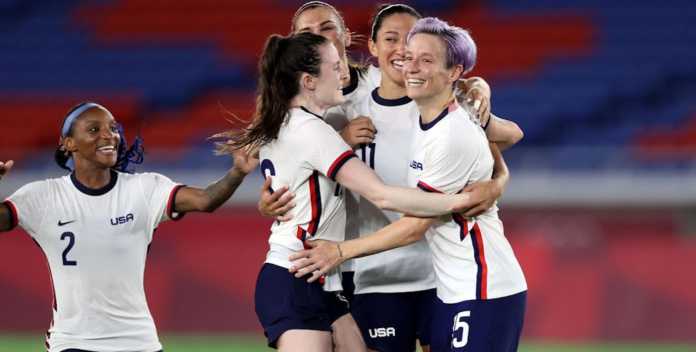In recent years, the landscape of women’s football has undergone a remarkable transformation, marked not only by the surging popularity of the sport but also by significant strides towards achieving equality in various aspects. One key area that has gained increasing attention is women’s football wages, a crucial indicator of the sport’s progress towards gender parity.
The Historical Disparity
For decades, a glaring wage gap between men’s and women’s football has persisted, reflecting broader societal inequalities. Male football players enjoyed astronomical salaries, lucrative endorsements, and substantial bonuses, while their female counterparts struggled to secure even a fraction of these earnings. This stark imbalance was a reflection of deep-seated gender biases, limited investment, and a lack of visibility for women’s football.
The Winds of Change
However, the winds of change have been sweeping across the football world, fueled by the determined efforts of players, advocates, and organizations committed to bridging the wage gap. The success of international tournaments like the FIFA Women’s World Cup and the UEFA Women’s European Championship, coupled with growing media coverage, has propelled women’s football into the global spotlight.
National football associations, sponsors, and clubs have recognized the potential of women’s football and the market it represents. As a result, they have begun to invest more significantly in the sport, leading to increased salaries, improved training facilities, and enhanced support structures for female players.
Rising Salaries and Contract Equality
The most tangible manifestation of this evolution is the rise in women’s football wages. While the figures are not yet on par with those of their male counterparts, they have been steadily climbing. High-profile players are negotiating more lucrative contracts, earning higher base salaries, and benefiting from improved bonus structures. These developments signify a growing acknowledgment of the skill, dedication, and marketability of women’s football and the fact that players at the 2023 Women’s World Cup were paid fees for the first time is a great sign of the times.
Additionally, some national football associations and leagues have taken proactive steps to address wage disparity. Initiatives such as implementing minimum wage standards, providing equitable training and travel conditions, and ensuring maternity support for players are becoming increasingly common. Such measures not only underscore a commitment to fairness but also create an environment that enables female players to flourish both on and off the pitch.
Empowerment and Representation
Beyond financial considerations, the transformation of women’s football wages symbolizes a broader cultural shift. It signifies that women’s contributions to the beautiful game are being recognized and valued at a level that reflects their dedication and skill. This recognition sends a powerful message to aspiring young players, encouraging them to pursue their dreams with determination and confidence.
As women’s football continues to gain momentum, the representation of female players in various spheres of influence is also increasing. From coaching and managerial roles to broadcasting and punditry, women are asserting their presence and expertise, shaping the narrative of the sport from within.
The Road Ahead
While significant progress has been made, the journey towards wage equality in women’s football is far from complete. Continued advocacy, investment, and collaboration among stakeholders are essential to ensure that the momentum is sustained. The role of media, too, is vital in spotlighting women’s football and showcasing the talent and achievements of female players.
As fans, sponsors, and football enthusiasts, we hold the power to shape the future of women’s football. By supporting women’s leagues, attending matches, and championing the cause of wage equality, we contribute to an inclusive and equitable football ecosystem that empowers all players to excel and inspire generations to come. The closing of the wage gap in women’s football is not just a financial matter; it’s a testament to the values of fairness, respect, and progress that the sport represents.







